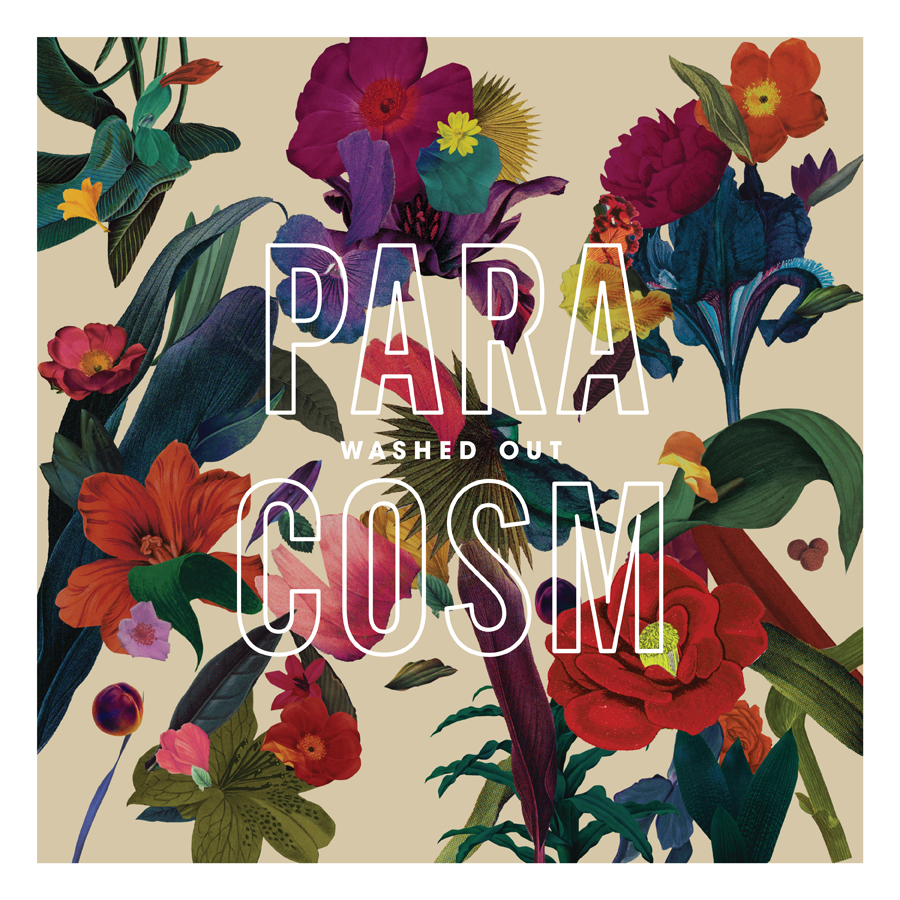Chillwave is fast becoming the 21st-century equivalent of shoegaze – a genre that was briefly ball-achingly cool before becoming maligned almost overnight with a load of divergent acts lumped under the banner and pelted with verbal stones. It’s hard not to feel some degree of sympathy with Georgia’s Ernest Greene, aka Washed Out, who was put forward as the poster boy of the chillwave scene and dismissed by many as a classic case of style over substance – music for American Apparel advertisements and Urban Outfitters in-store playlists. Admittedly Greene often didn’t do himself any favours, with videos like the one for ‘Amor Fati’ being a hipster’s gap year wet dream shot on Hispstamatic. The song itself was a vivacious synth-pop belter that brought Howard Jones to mind (in a good way. Yes, definitely a good way), but the majority of songs on his debut album, Within Or Without, were textbook chillwave with gauzy, winsome vocals drifting over layers of 1980s-referencing synth washes. Sometimes that worked a charm – the gorgeous ‘Eyes Wide Closed’, with its Phil Collins drum fills and euphoric denouement, for example, but too often it was eminently forgettable.
But anyone who has witnessed the Washed Out live experience will know that Greene is an ebullient live performer. Instead of brooding behind a bank of keyboards breathing into a static microphone set to “ethereal” as you might expect, he is the life and soul of the party; memorably recalled by Alexis Petridis in a Guardian live review two years ago: "Hey guys!" he [Greene] shouts, a bottomless font of bonhomie and excitement. "You all having a good time? Give it up for Ray on the bass! Come on!"
Paracosm, the second album from Washed Out, feels very much like Greene’s attempt to shake the chillwave tag and align himself more with the fleshed-out pop aesthetic of the Washed Out live experience, where he is backed by a full band that includes his wife Blair. For starters he has massively expanded his sonic palette, utilising fifty different analogue and often obscure instruments, with the Mellotron, Chamberlain Synthmate, Novatron and Optigan keyboards being added to his battery of synths, but also acoustic guitars, glockenspiels and even a harp (or a sample of a harp, instrument pedants). It also appears that he has been expanding his mind, as Paracosm explores the album’s namesake phenomenon – the idea of people creating detailed imaginary worlds within which to retreat, a concept that has been used to describe fantasy lands like J.R.R. Tolkien’s Middle Earth and C.S. Lewis’s Narnia.
Greene’s magical world is a musical one, and ‘Entrance’ is the gateway, mixing birdsong, plinky- lonky melodies and jungle found sounds. The first proper song, ‘It All Feels Right’, is an inauspicious opening to Greene’s brave new world with its cod reggae rhythms, syrupy melodies and a typically vapid lyric about everything feeling alright. It ends with crowd chatter reminiscent of the burble in Wham!’s ‘Club Tropicana’, but more rowdy. Probably a load of EDM-loving jocks. The funky ‘Don’t Give Up’ has cowbells and another Phil Collins-referencing drum fill. By the time the slo-mo synth-pop of ‘Weightless’ blurrily drifts into earshot, the sinking feeling is that perhaps it’s going to be business as usual…
But the perky ‘All I Know’ is the first hint that Greene might be on to something special – a new way of doing things. A shimmering Cocteaus riff is shoved aside by a driving acoustic guitar and a loping beat, with pedal steel flourishes and a euphoric chorus, embellished with a squiggle of synths that should be played by Rick Wakeman, in a cape, standing at the edge of a cliff. All that’s missing is a Jan Hammer-esque saxophone solo or some wigged-out keytar action. The slinky ‘Great Escape’ follows, with a louche groove and lushly tropical melodies, while the title track combines harps, crashing cymbals, seductive drums and fretless bass. If the breathy vocal is on the weak side, it adds atmosphere and suits the mood. ‘Falling Back’ is superb. It starts out as jangle-pop with twinkling glockenspiels and shakers, but they soon yield to trippy backward guitars, pulsing drum machine and sweeping, epic strings. The song concludes with the sound of an enthusiastic crowd clapping along and whooping its appreciation, which is a little bit narcissistic, but coming off the back of such a great song, Greene just about gets away with it. The heavily reverbed ‘All Over Now’ is dreamy, but perfunctory, and an underwhelming end to a promising album.
Like shoegaze, chillwave may well be reappraised in a decade or two when hipster-baiting isn’t a national sport and become flavour of the month. But Paracosm deserves to be praised and enjoyed now, not in 20 years’ time. He’s not quite cracked it, but it’s a big step in the right direction.


